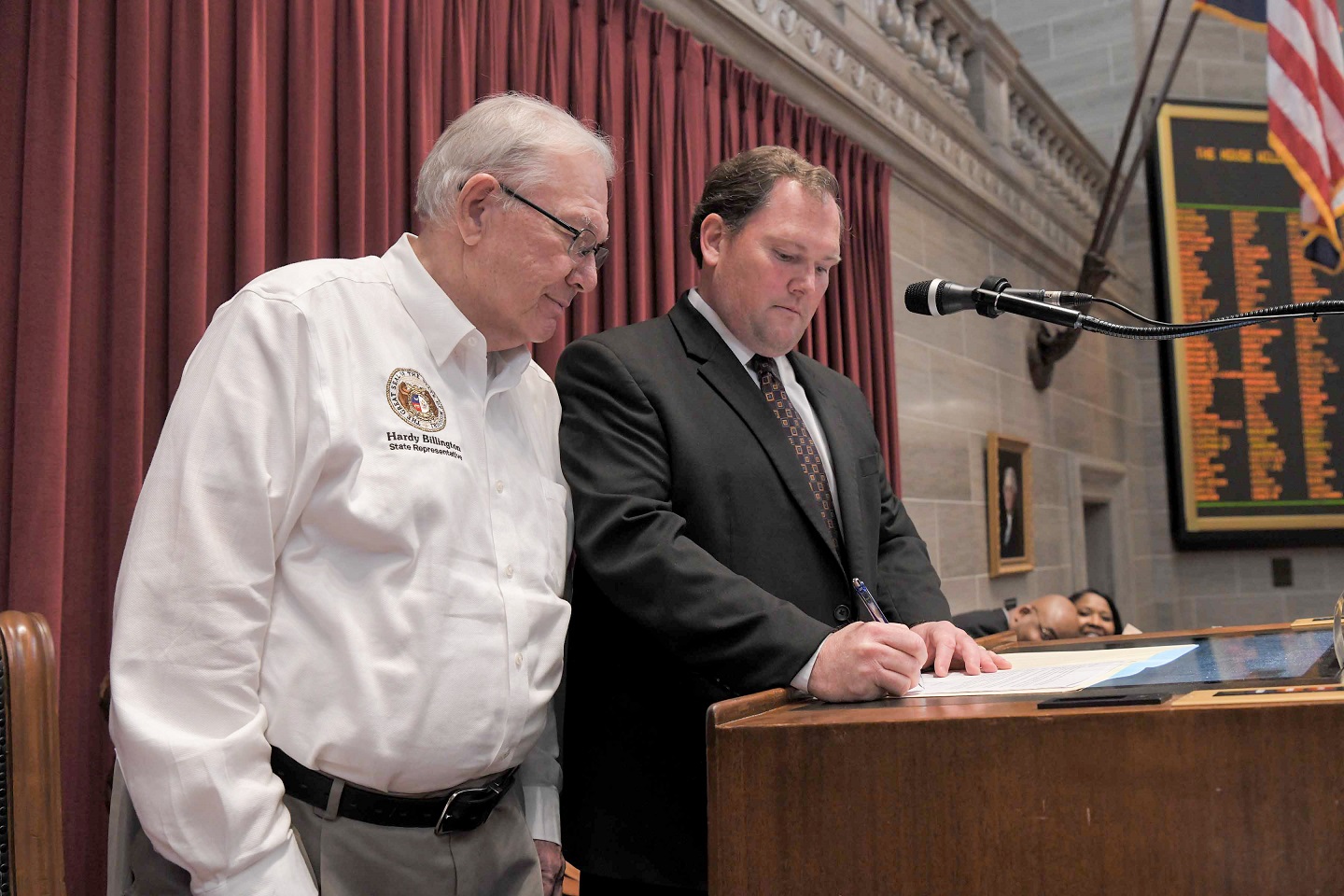A House bill recently signed into law will close what the sponsor calls a “loophole” in Missouri’s laws regarding the theft of copper and precious metals.
Missouri law tracks every time a business purchases scrap metal, junk, or other materials that include copper, but an exemption leaves such transactions unrecorded if the material is valued at less than $50. House Bill 69 repeals that exception so that all such sales will be recorded.

Sponsor Hardy Billington (R-Poplar Bluff) said this will deter copper theft, which is a problem statewide. He’s heard of thieves stripping copper from vacant houses in his district and doing tens of thousands of dollars of damage.
“By doing this then they can track who’s been stealing copper and who’s been selling it, and if you can’t sell it, why break in and steal it?” said Billington.
HB 69 also aims to address a dramatic increase in recent years in the theft of catalytic converters. The bill makes such thefts a Class-E felony, punishable by up to four years in prison.
“[Thieves] get a battery-powered saw and cut a catalytic converter out and probably in 2 or 3 minutes, and they’ll be gone,” Billington said. “That’s happened again to my town just the other day. They went to a auto dealer place and the guy had already cut out five or six catalytic converters.”
Under the bill a detached catalytic converter also cannot be altered or destroyed for five days after it is bought.
Another provision increases from five days to ten the time a pawn shop owner must wait before melting down precious metals, in case they’ve bought stolen items.
“That gives more time to policemen to trace it,” Billington said.
HB 69 also increases the length of time records on the sales of certain metals must be maintained from two years to three.
The House voted 138-5 for final passage of the bill. Its provisions take effect August 28.